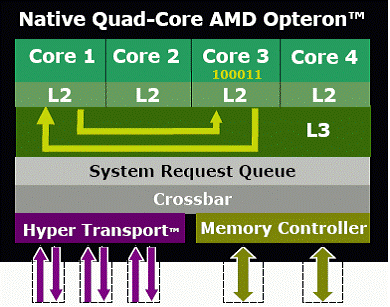What Is L3 Cache And Why Is It Important

An average computer user would almost certainly know concepts such as memory, CPU, and a constant memory. However, the respective users get puzzled when asked regarding the cache memory.
In general terms, a cache memory mean fast access, which contains the actual information and the results of calculations. Modern computers cache is located on the same chip as the CPU.
The term cache has several meanings. In general terms, it is an intermediate buffer to store most of the requested data. When it comes to working on a computer, distinguish the processor cache and browser cache.
Instructions
-
1
On your computer, there are two different types of cache: Cache memory and cache thumbnails. The cache is a temporary storage of information. If it is not fully supporting the system, it can greatly reduce the operating parameters of your system. Timely clearing the cache frees system memory, free disk space and help resolve some of the problems with the Internet connection.
-
2
The difference in the speed of modern processors and memory is still substantial, and they are unlikely to ever catch up the cache which is used now. Cache of the CPU can be divided into three levels (L1, L2 and L3).
-
3
The first level is smaller, but the fastest speed of data processing, and the second, respectively, stores more volume temporarily. However, it is slower than the first one. It should be noted that it is now possible to meet the same processor with three levels of cache. Remember, the higher the level, the greater the volume and lower the speed.
-
4
The need to use the cache is because of the differences in the rate of exchange of information between the processor and the different sections of the computer memory. Operation of any application begins with the transfer of necessary data with a relatively slow hard disk to RAM (computer memory) in the section on dynamic random access. From there, they can be transferred to the cache L2 (the second level), located in the processor chip or a separate dedicated chip SRAM, which has a high transmission speed and located near the processor. Finally, the most used information can be transferred to the cache L1 (first-level memory), which is a dedicated section of the processor.






